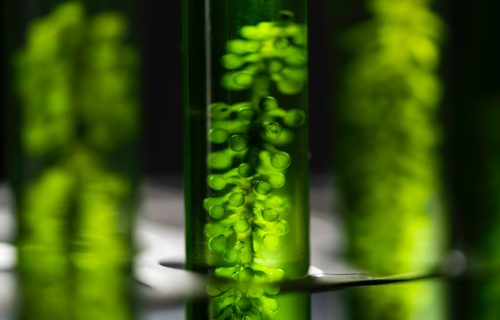HERZLIYA, Israel — If you want a delicious and sustainable dinner, consider swapping your red meat with Spirulina. New research from Israel suggests a daily diet that includes the blue-green algae can boost your health and slow down climate change.
Spirulina algae is considered a superfood for its rich protein, iron, and essential fatty acid content. Compared to beef, spirulina is a far superior healthy food choice and would serve as a sustainable meat substitute. Spirulina is cultivated in Iceland, where the study authors say it has the potential to be the site for future food production.
Beyond the nutritional quality of Spirulina, it also leaves a smaller ecological footprint on the planet than meat. Raising cattle requires vast amounts of land for food and grazing. As cows chew on grass and plants, their burps and farts release methane—a dangerous greenhouse gas. One kilogram of beef is estimated to cost 1,450 liters of water and 340 square meters of fertile land. Additionally, creating one kilogram of beef meat releases another 100 kilograms of methane. As demand for meat goes up, so does the timeline toward a warmer and uninhabitable planet.
The study authors suggest Spirulina as an appropriate substitute for meat. In a state-of-the-art facility in Iceland, spirulina is cultivated in closed, controlled systems where they are exposed to specific wavelengths and away from the cold Icelandic temperatures. The biotechnology is resilient to changes in environmental and climatic conditions and can be usable in other parts of the world.

For every kilogram of beef replaced with Iceland’s spirulina, the study suggests people would save on 1,400 liters of water, 340 square meters of fertile land, and prevent nearly 100 kilograms of greenhouse gases from entering the atmosphere. This is because Spirulina is an autotrophic organism, relying on photosynthesis and carbon dioxide for energy. Producing these algae would help take out greenhouse gases from the atmosphere and lessen climate change’s effects.
“Nutritional security, climate change mitigation, and climate change adaptation can go hand in hand. All consumers must do is to adopt a bit of Icelandic Spirulina into their meals and diets instead of beef meat,” says co-author Asaf Tzachor, a researcher at the School of Sustainability at Reichman University, in a press release. “It’s healthier, safer, and more sustainable. Whatever change we wish to see in the world should be manifested in our dietary choices.”
The study was published in the journal Marine Biotechnology.

Straight up biased propaganda…. Science finds the answers it’s paid to find by only referencing the information needed to ensure the desired outcome.
We need to wake up as the NWO and the caste society they are creating will not be a nice place for our children and their children to exist in.
Incredible stupidity pushing ridiculous green religion to eat algae instead of beef. You do that and by the way don’t have any children to reduce your carbon footprint. We need your type genes out of the pool.